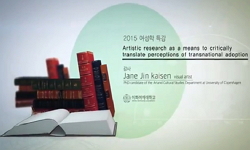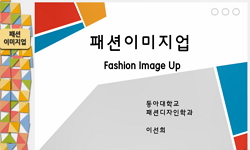Smartwatches, among many wearable form factors, have become an important starting point for the wide dissemination of wearable devices. Not only are smartwatches a new IT product, they are also a fashion product. Recognizing the smartwatch as the conv...
http://chineseinput.net/에서 pinyin(병음)방식으로 중국어를 변환할 수 있습니다.
변환된 중국어를 복사하여 사용하시면 됩니다.
- 中文 을 입력하시려면 zhongwen을 입력하시고 space를누르시면됩니다.
- 北京 을 입력하시려면 beijing을 입력하시고 space를 누르시면 됩니다.


Is the smartwatch an IT product or a fashion product? A study on factors affecting the intention to use smartwatches
한글로보기부가정보
다국어 초록 (Multilingual Abstract)
Smartwatches, among many wearable form factors, have become an important starting point for the wide dissemination of wearable devices. Not only are smartwatches a new IT product, they are also a fashion product. Recognizing the smartwatch as the converging point of IT innovation and fashion, the current study examines whether factors germane to the characteristics of fashion products affect the intention to use smartwatches. Utilizing the technology acceptance model (TAM) as the base framework, the current study extended the model by incorporating perceived enjoyment and perceived self-expressiveness, which are influenced by an individual's vanity and need for uniqueness. The findings from 562 Korean respondents indicated that the characteristics of smartwatches as fashion products significantly explain the intention to use a smartwatch, particularly the individual's desire for uniqueness. A limited effect of vanity on self-expressiveness implies that the smartwatch is not yet deemed a luxury commodity. Theoretical and practical implications, as well as the limitations of the study are further discussed.
동일학술지(권/호) 다른 논문
-
Mobile phone dependency and its impacts on adolescents' social and academic behaviors
- Pergamon
- Seo, D.G.
- 2016
- SCOPUS,SSCI
-
Using eye movement data to infer human behavioral intentions
- Pergamon
- Park, H.
- 2016
- SCOPUS,SSCI
-
Consumer valuation of the wearables: The case of smartwatches
- Pergamon
- Jung, Y.
- 2016
- SCOPUS,SSCI




 ScienceON
ScienceON






